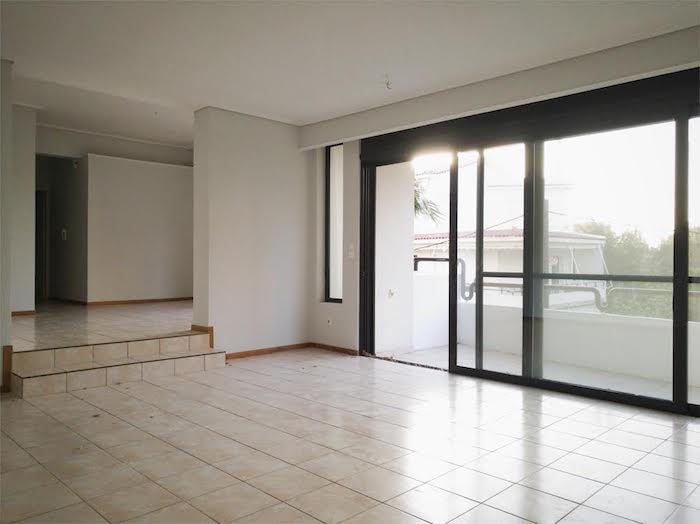(Editor’s note: This is Pt. 1 of a two-part series about buying an apartment in Athens. You can jump to Pt. 2 here.)
In a related series on house-hunting in Athens, I went over some things you need to look out for, as well as some general information about the local market and the searching process. I also shared some tips on dealing with multiple agents and some of my observations about the properties I viewed.
In this post, now that my husband and I have finally become homeowners, I will share the experience of the purchasing process and some of the unexpected stresses and joys that went along with that.
The hunt took ages and the chase took almost as long, but we have finally made a good apartment ours. It was more challenging than I ever would have guessed it would be and in so many more ways than I could have imagined!
Did we overpay?
Yep.
We paid more than double the “objective value.”
Objective value is the official tax value of a property, determined by the government on the basis of size, location, floor level (if in an apartment building), construction dates and so on. The market value is the price as determined by supply, demand and sales. Purchase prices these days are much, much higher than the objective values.
Prices are unbelievable and still rising though, so we don’t feel as terrible about that as would otherwise.
Are we the worse for wear?
Definitely.
We are pretty shattered, but we have the keys to our own apartment now and that feels good.

Housing quality is a reflection of the economy
As first–time home owners, it feels strange to not have to worry about sudden and steep rent hikes and
negotiating with landlords who have become emboldened to previously unimaginable levels of greed by the crazy housing market which is greatly affecting both purchases and rentals.
It took us just over six months to make the apartment ours. We gave a first deposit of 5,000 euros to hold the apartment back in April. The apartment is in a family building in which the original owners had decided to sell off two of the four units.
The quality and maintenance of our apartment are of a high standard, unlike the one in many places I saw in my long search. The government says the economy is doing well and indeed new constructions are way up, but most people are making lower salaries than ever before, especially in relation to inflation rates which are through the roof.
You can see that money is tight when you tour homes to buy or rent. People are not keeping up their properties. Greeks are conventionally quite house-proud, but many places are in need of fresh paint, mold remediation, window replacements and so on.
You will have to take a careful survey of what you need/want to repair/replace and also make a note of the shared spaces and exterior of the building if you are looking to buy an apartment.
If things are in bad shape, make sure you find out what building agreements are in place and note that things like that are not easily enforced here. Make sure you have independent heating if that is important to you. Some buildings no longer use the common heating systems (heating oil and radiators), mainly
because a good number of people can’t/don’t want to pay for heating or are only using their fireplaces.
Many residents in those buildings have had to spring for alternative systems powered by electricity and those can get pricey. Ask a lot of questions and talk to your engineer about these matters if they are unclear.
Try to find a family building
One of the selling points of our new apartment is that the family had personally overseen the construction and it seems they had really paid attention to quality and functionality as well as
maintenance.
Tip:
Ask about the history of the building. Family buildings are sometimes better builds than hasty constructions put up by the many development companies that have come and gone in Athens in the past few decades.
In the past, especially when the economy was better, a lot of Greek families pooled their resources to put up a family apartment building with the parents eventually in one apartment and adult children and their families in the others.
Sometimes these units were rented out until the children finished with their studies, etc, and/or were starting families of their own and then they would move in. Sadly, a lot of families had to sell these off for peanuts in the early days of the economic crisis of the mid-2000s but some remain. Oftentimes these buildings, meant as they were to house close family members, are better builds than other places.
But the bottom line is, there is a housing shortage in Athens, forcing up prices.
The entire process that was much more convoluted and lasted much longer than we had expected.
––––––––––
Read more about Athens here in Dispatches’ archives.
See more from Christina here.
A Pittsburgher by birth, Christina T. Hudson is also half Greek and has – so far – spent most of her life in Athens, the chaotic but captivating capital city of Greece.















